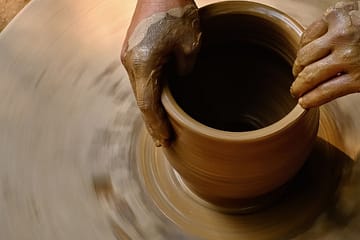I really don’t like being told I should panic. I’ve spent the last twenty years learning how to calm my panic about wars and ecological catastrophy. My body isn’t built to sustain chronic panic. Does anyone make their best decisions when panicked?
I confess that I feel really challenged by climate activist Greta Thunberg, a young woman from Sweden, who is speaking some truths to all of us about the necessity to give all we’ve got to address climate change. She is particularly noted for saying “I want you to panic.â€
I really resist this call to panic and the intensity of my resistance tells me there is something for me to explore. Reading deeper, I read that Thunberg has said “A great number of politicians have told me that panic never leads to anything good and I agree. To panic, unless you have to, is a terrible idea. But when your house is on fire and you want to keep your house from burning to the ground then that does require some level of panic.â€
What would “some level of panic†be like? I believe she is asking for focused alertness, immediate reprioritization of everything, and urgent action. This is a skillful panic that has no time to waste on adrenaline and the emotional exhaustion of panic spiraling out of control.
Maybe panic doesn’t mean what I think it means.
I started researching the origin of the word panic and found that it refers to the Greek demigod Pan. Pan has the hindquarters, legs, and horns of a goat and is known for being energetic, sometimes frightening, with the wild, unbridled creative force of nature. His name means “all†in Greek, invoking the all of creation.
He is associated with fertility, revelry, and playing his panpipes. The son of Hermes, he shares his father’s shrewdness and sense of humor. He also has a very powerful voice and in one tale he let out such an immense cry that it frightened the enemy to run away in an irrational fear. This is the origin of the word “panic.â€
According to Merriam-Webster, at first “panic†was an adjective, used to describe a certain type of fear or fright. Then it evolved into a noun, as a type of fear. Eventually the word became the verb we know today.
Is befriending panic about befriending Pan, the wild unbridled voice of nature?

I think it is fascinating that while Pan’s voice could be terrifying, that was also only one aspect of him. He loved mischief and revelry and was known for keeping company with nymphs.
Our collective fear of our own wildness is part of what has got us into this mess. To become more Pan-like is to re-wild ourselves. It includes remembering types of knowledge that cannot be written down. It means joining the growing conversation about what it might mean to re-indigenize ourselves, be accountable to community, return to local food ways and so much more.
Revelry is essential to the spirit of Pan, and might it also be an essential element of the panic we need for these times? I find this thought wonderfully provocative. No one ever includes dancing in emergency procedures. But if our urgent task is to align ourselves with the voice of the creative force of nature, is there any more efficient way than dancing? May tapping into the life force of nature give us the energy to act with humor, force, creativity, and vigor.
With wild love,
emily
Revelry every week!
Drop in any week to experience the collective joy of dance. The Wisdom Dances Circle is based on Laura Shannon’s research on traditional dances from the Balkans, Greece, and Asia Minor as tools for healing and transformation.
Two special (free) events coming up June 30:
An Introduction to Traditional Dances as tools for transformation.


